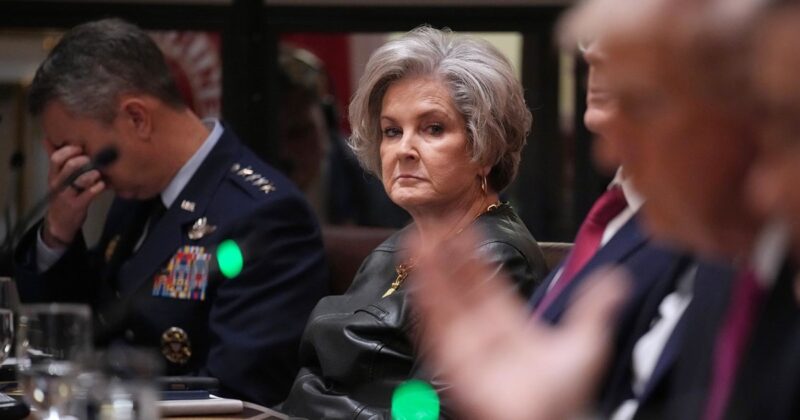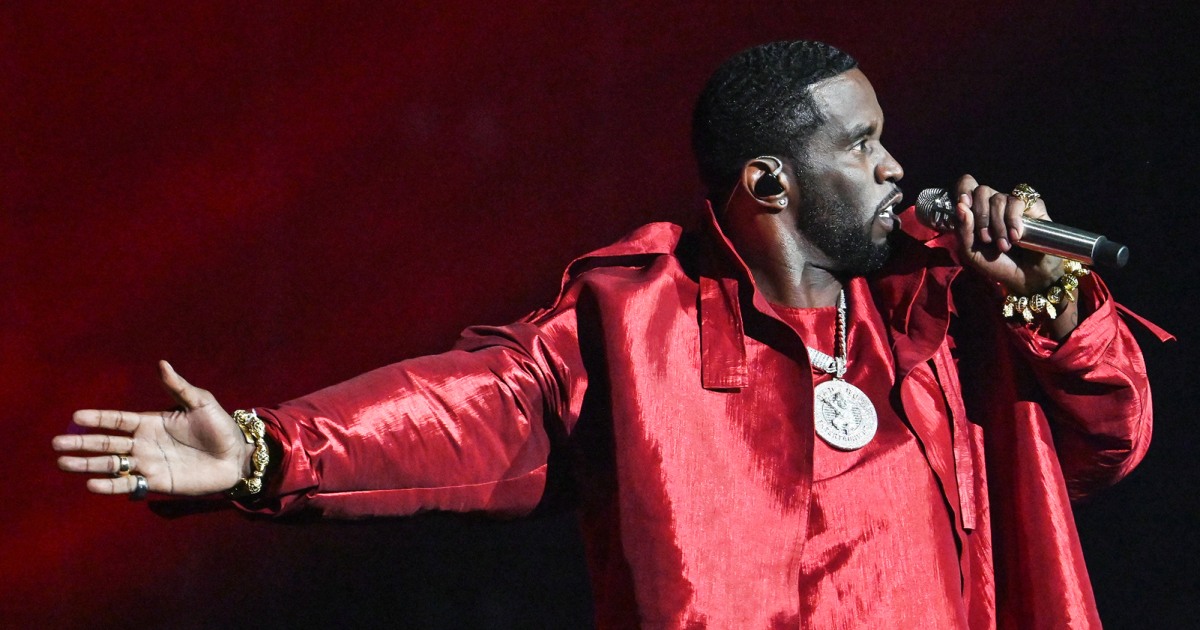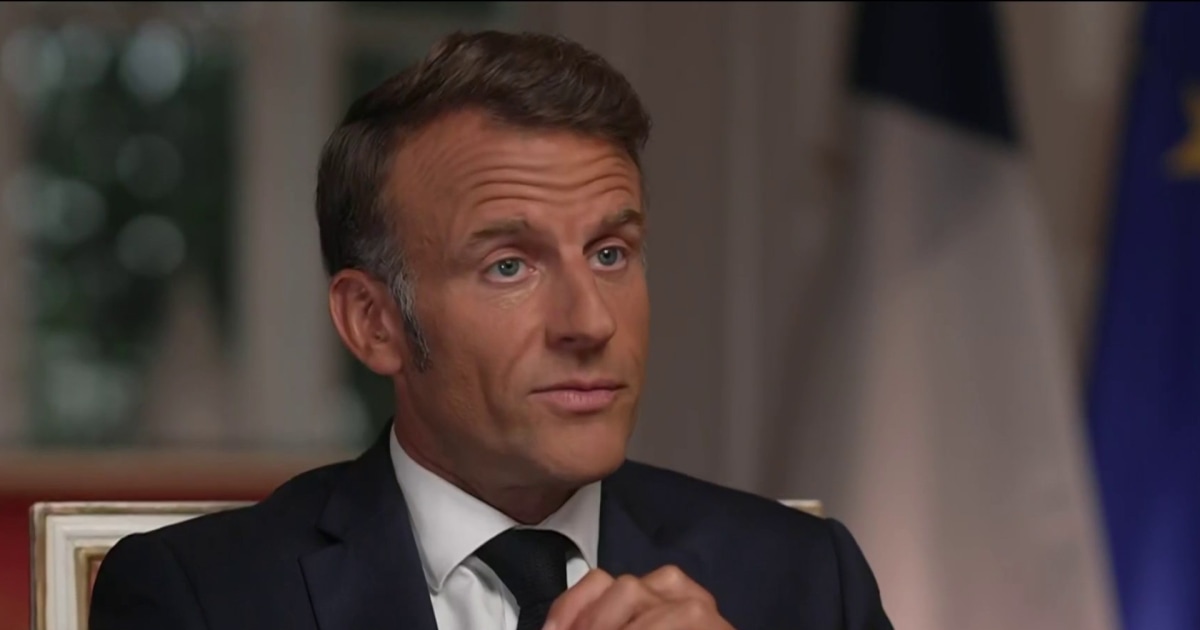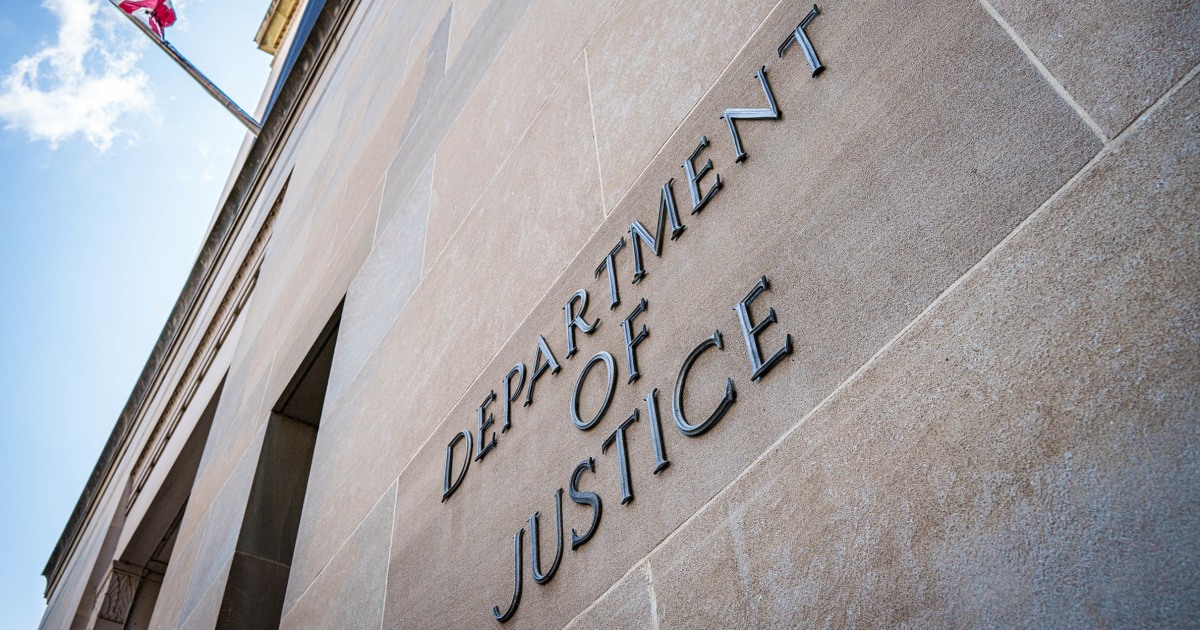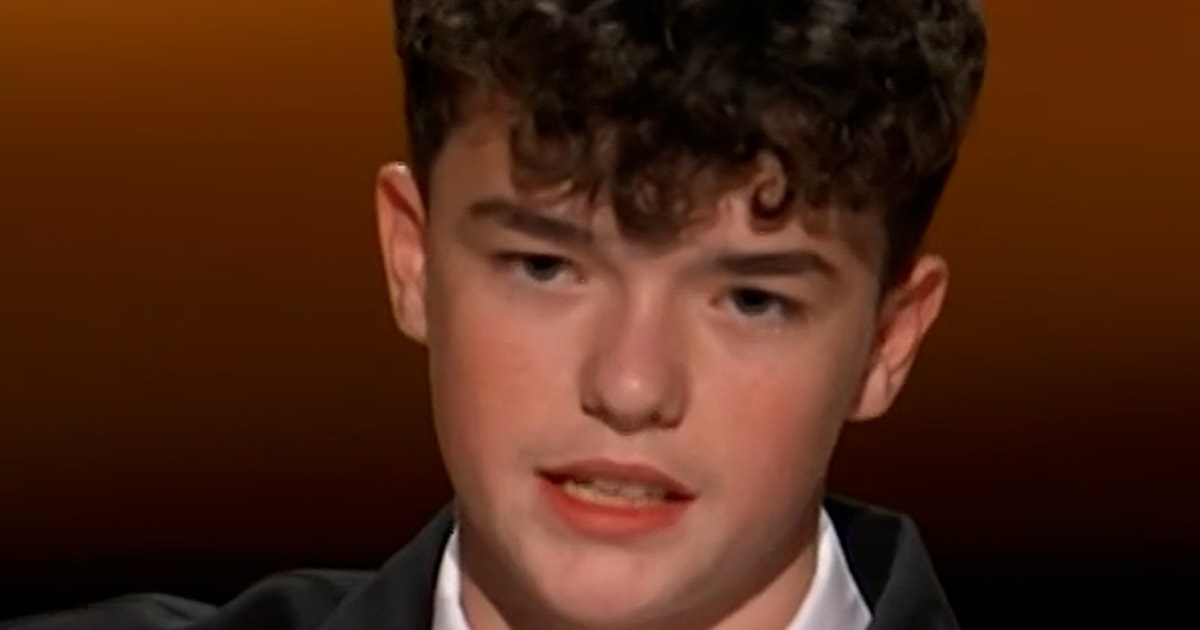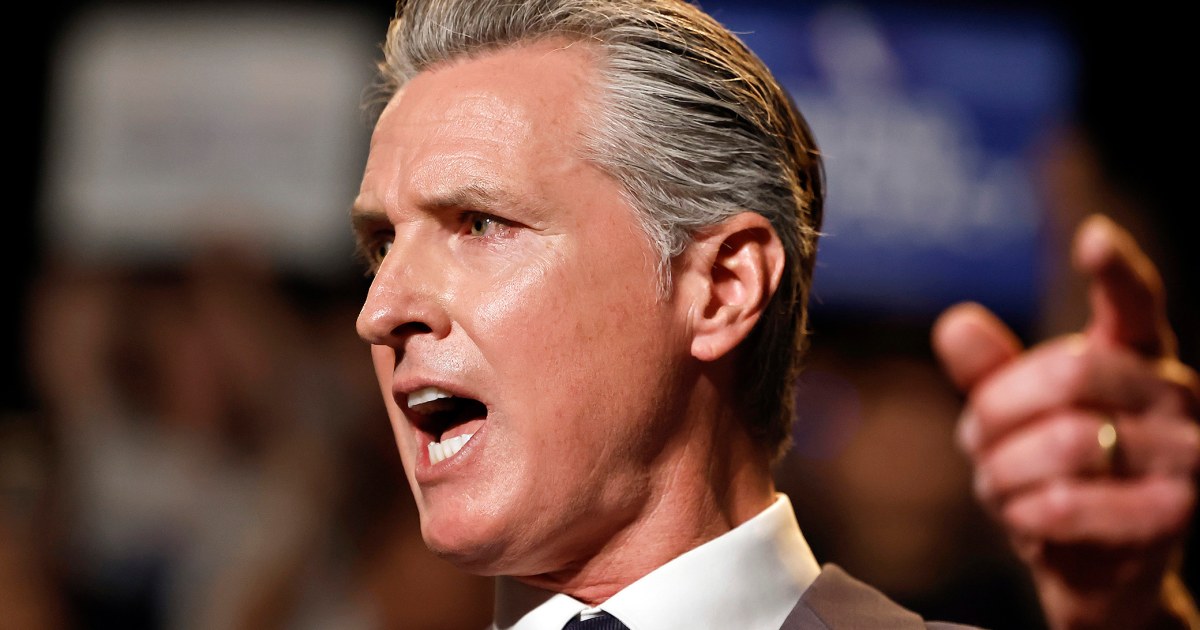WASHINGTON — As soon as Donald Trump took office for his second term, he began using his clemency power at a steady clip. It started with the pardons of the roughly 1,500 criminal defendants charged in the Jan. 6, 2021, attack on the U.S. Capitol, and continued each month, with more pardons or commutations.
At the end of May, he had issued 73 clemency actions, not including all the Jan. 6 defendants. Trump once called the power to pardon “a beautiful thing.”
“You got to get it right,” he told reporters during his first term.
But after May, the pardons stopped.
Four people familiar with discussions around pardons told NBC News that top White House officials became concerned about attempts from outsiders to profit from the clemency process, and two of those people said the White House paused on Trump issuing pardons in order to get more control over matters. These people, like others in this story, were granted anonymity to speak candidly. Another factor has been the president’s crowded agenda, which included foreign and domestic priorities, one of those people said.
Two senior White House officials said chief of staff Susie Wiles, who has played a central role in reviewing pardons, became more outspoken after reports emerged that lobbyists and consultants were advertising themselves as offering access to Trump’s pardon authority for steep prices.
Those officials said Wiles pushed back hard against these efforts and tightened the process to distance it from those attempting to broker influences. While it’s legal to engage lobbyists on these issues, Wiles didn’t like the look. That meant making clear to those on the outside that she would not tolerate people trying to profit from the clemency process, one of the senior White House officials said.
“Chief of staff Wiles does not mess around, especially when it comes to outsiders wrongly tossing around proximity to the president to gain fortune and favor,” this person said.
Urgency grew after Bloomberg reported in August that two intermediaries seeking to cash in on a burgeoning pardon economy were floating a plan to Roger Ver, a man known as Bitcoin Jesus for his early crypto evangelism, to secure a presidential pardon for him in exchange for $30 million. The White House denied any knowledge of the plan to Bloomberg.
The report set off alarms inside the White House, the two White House officials and two others familiar with the discussions told NBC News. Last week, Ver reached a deferred prosecution agreement to resolve the federal tax charges brought against him. He has not yet been granted a pardon.
In late May, NBC News also reported that some lobbyists had received proposals as high as $5 million to press cases before the president. More recently, an associate of former Sen. Bob Menendez, who is accused of bribing the senator with gold bars, paid $1 million to a Washington lobbyist with ties to Trump to help secure clemency, three sources told NBC New York. Lobbying disclosure filings described the payment as for “executive relief.”
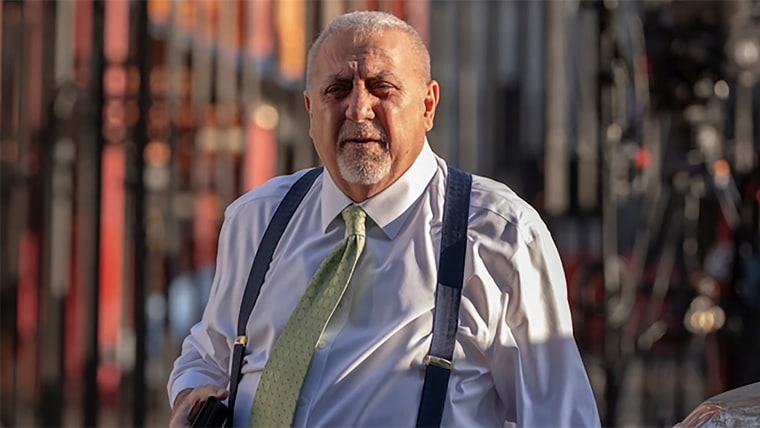
Clemency actions picked up again this month.
Last week, Trump commuted the seven-year prison sentence of former New York Rep. George Santos, with the timing of the move surprising even some close allies. Trump granted another pardon this week, for Changpeng Zhao, the founder and former CEO of crypto currency exchange Binance, who had previously pleaded guilty to enabling money laundering. Binance has ties to World Liberty Financial, which has administered many of the Trump family’s crypto projects.
A pardon was not certain; Zhao’s lawyers had received conflicting signals, at times believing it would happen and other times not, a person familiar with the discussions said. In confirming Zhao’s pardon, which was first reported by The Wall Street Journal, White House press secretary Karoline Leavitt said Zhao had been unfairly prosecuted by then-President Joe Biden’s administration, declaring that “[t]he Biden Administration’s war on crypto is over.”
The Zhao pardon came after Trump met with Wiles and White House Counsel David Warrington on Monday again to review a new slate of candidates. The senior White House official said more people are poised for relief once the president has an opportunity to sign them.
A person familiar with the discussions said that now, Wiles “is at least controlling the timing” of pardons.
Others seeking relief from the president include Pras Michel, a member of the Fugees who was convicted in 2023 in a foreign lobbying and campaign finance case, according to one of the people familiar with the discussions. This person said they believe Michel is likely to receive a pardon once the president’s signings pick back up again.
According to the two senior White House officials, clemency requests are received and reviewed by the White House counsel’s office, with Warrington briefing Wiles before the two meet with Trump to present a slate of candidates for the president’s consideration. Alice Johnson, who became a prominent advocate for criminal justice reform after Trump commuted her life sentence during his first term and now serves as the president’s “pardon czar,” advises the process, focusing on drug-related cases, among others, one of the officials said. The Justice Department also sends pardon requests to the White House counsel.
Trump’s pardons have faced plenty of criticism, including, at times, from his own allies.
Santos was released from prison this week after serving just months into his seven-year sentence. Last year, he pleaded guilty to charges of committing wire fraud and aggravated identity theft. His short time in political life was plagued by accusations of campaign finance violations and lying about his qualifications. Republican lawmakers who voted to expel Santos from Congress spoke out after Trump commuted Santos’ sentence.
“The President has the discretion to commute sentences for people convicted of federal crimes. In this case, Santos willingly pled guilty to these crimes and then complained about having to serve his sentence,” Rep. Andrew Garbarino, R-N.Y., said. “The victims of his crimes still have not been made whole, including the people he stole from and the voters he defrauded. He has shown no remorse. The less than three months that he spent in prison is not justice.”
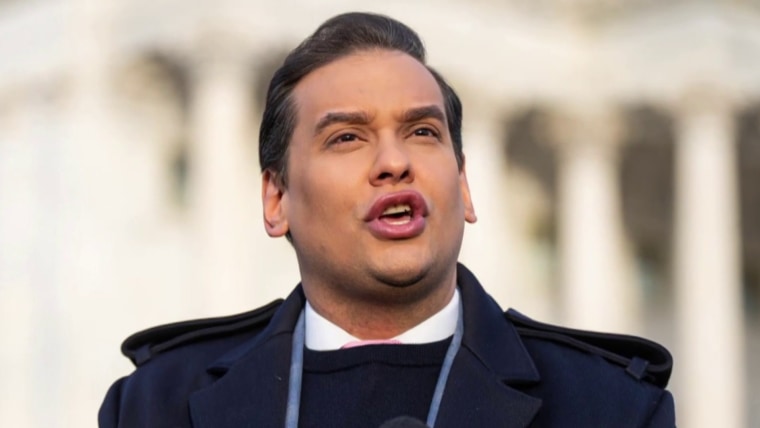
Presidents largely have unchecked pardon power, and past presidents have also faced criticism for using it to assist allies. Biden received blowback, including from many Democrats, for issuing pre-emptive pardons for his family on his way out of office. But Trump has issued far more pardons at a consistent pace, with many going to allies or well-connected individuals.
After Trump pardoned a Virginia sheriff convicted of bribery, who was a supporter of the president, Trump’s pardon attorney, Ed Martin, posted on X: “No MAGA left behind.”
“Policy-wise, Trump is one of the few presidents who tried to commit to doing these pardons regularly,” one of the sources familiar with the discussions said. This person and another close to the White House said they expected the process to resume with pardons issued on symbolic dates — Juneteenth, July 4, Labor Day or before the start of the government shutdown — but it never did. The delay was not strictly due to concerns around conflicts of interest, one of the senior White House officials said, but also the president’s lack of signing time.
Trump’s clemency decisions have included well-known figures and political allies — such as former reality television stars Todd and Julie Chrisley, as well as former Illinois Gov. Rod Blagojevich, who was once a contestant on Trump’s “Celebrity Apprentice” TV show — and people whose cases revisit questions about political persecution and fairness — including a group of anti-abortion protesters and Devon Archer, a former business partner of Hunter Biden who spoke out against the former president’s son.
Marc Osler, a law professor at the University of St. Thomas School of Law in Minnesota who is an expert on clemency, said every president favors certain types of cases. With Barack Obama, it was narcotics defendants, and with Trump, it’s white-collar cases.
“What merits examination is the process being used right now. Like Biden at the end of his term, Trump appears to be using an informal, closed and opaque process to evaluate petitioners (or those like George Santos who did not even file a petition), while ignoring the thousands of people who followed the rules and submitted a clemency petition through the pardon attorney,” Osler said. “I agree with Trump that the old evaluation system for clemency needed to be demolished; but now it needs to be remade into something accessible, fair, transparent and lasting.”
Leavitt said that “the Trump White House takes this process and responsibility extremely seriously.”
“Each clemency request is intensely vetted and reviewed, and President Trump ultimately makes every clemency decision,” she added.
After speculation rose this week, the White House said there have not been discussions of clemency for Sean “Diddy” Combs, who was convicted in July on two counts of transportation to engage in prostitution but was acquitted on more damning charges of racketeering and sex trafficking. Combs’ lawyers have previously told NBC News they have been pursuing a pardon for their client.
“There’s been no paper pushed on it,” one of the White House officials said, referring to the formal vetting process required for clemency applications.
Trump has occasionally declined to go forward on recommended cases, a senior White House official said, and sometimes requests additional information before making a final decision.
The president has been outspoken granting clemency to those he believes were treated unfairly by the justice system, and seekers have found success in drawing attention to their treatment. When Trump commuted Santos’ sentence, he remarked on the “long stretches of time” the former congressman had spent in solitary confinement, saying Santos, “by all accounts, has been horribly mistreated.”
Recognizing Trump’s instincts for what he views as deliverance, one of the people familiar with discussions expressed hope that Trump would not extend similar leniency to Combs, who was convicted on two counts of transportation to engage in prostitution. On Oct. 3, a federal judge sentenced Diddy to 50 months in prison.
“I hope he doesn’t pardon Diddy,” this person said. “But I could see him doing it because he might think he’s served enough.”

